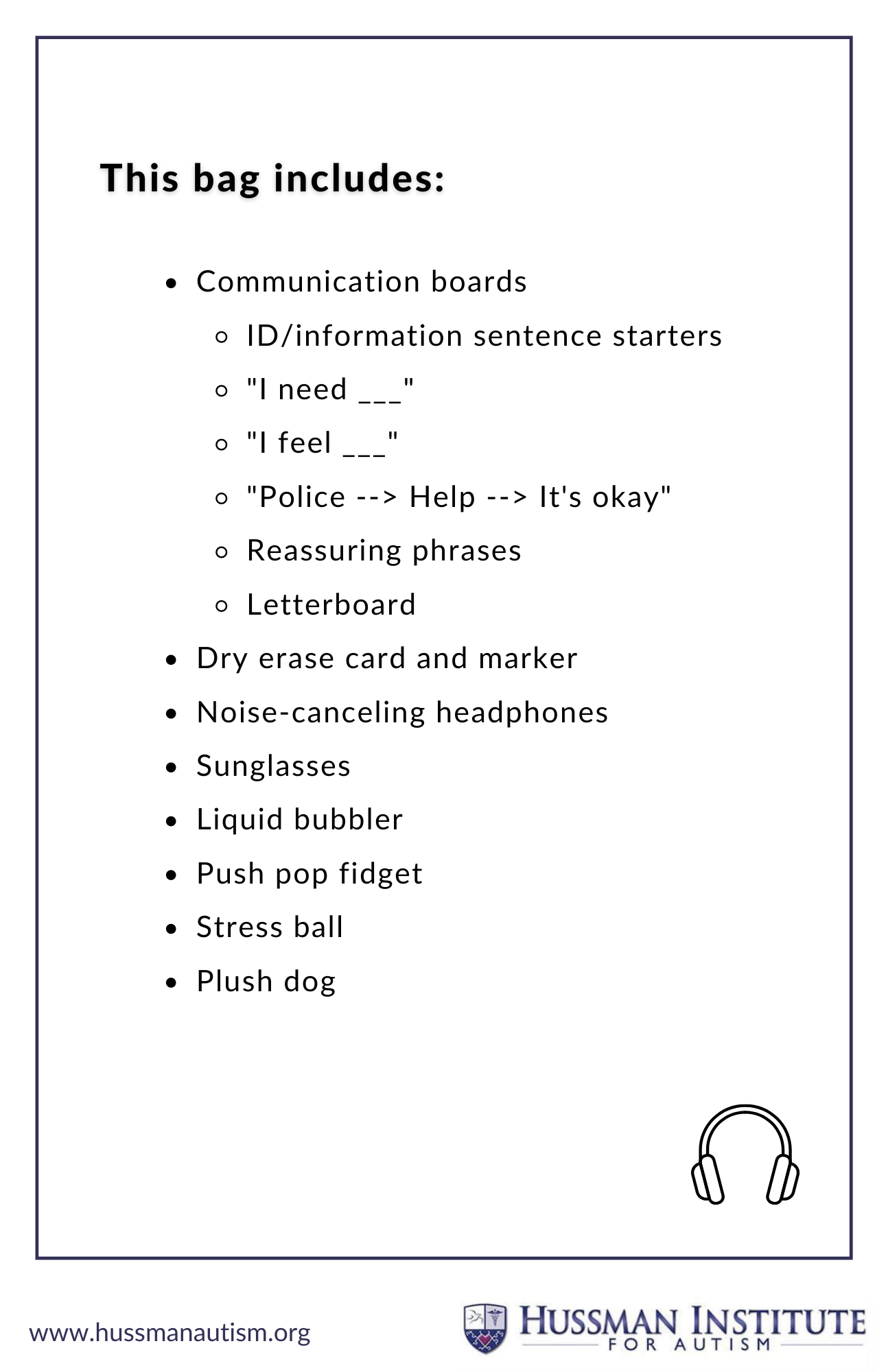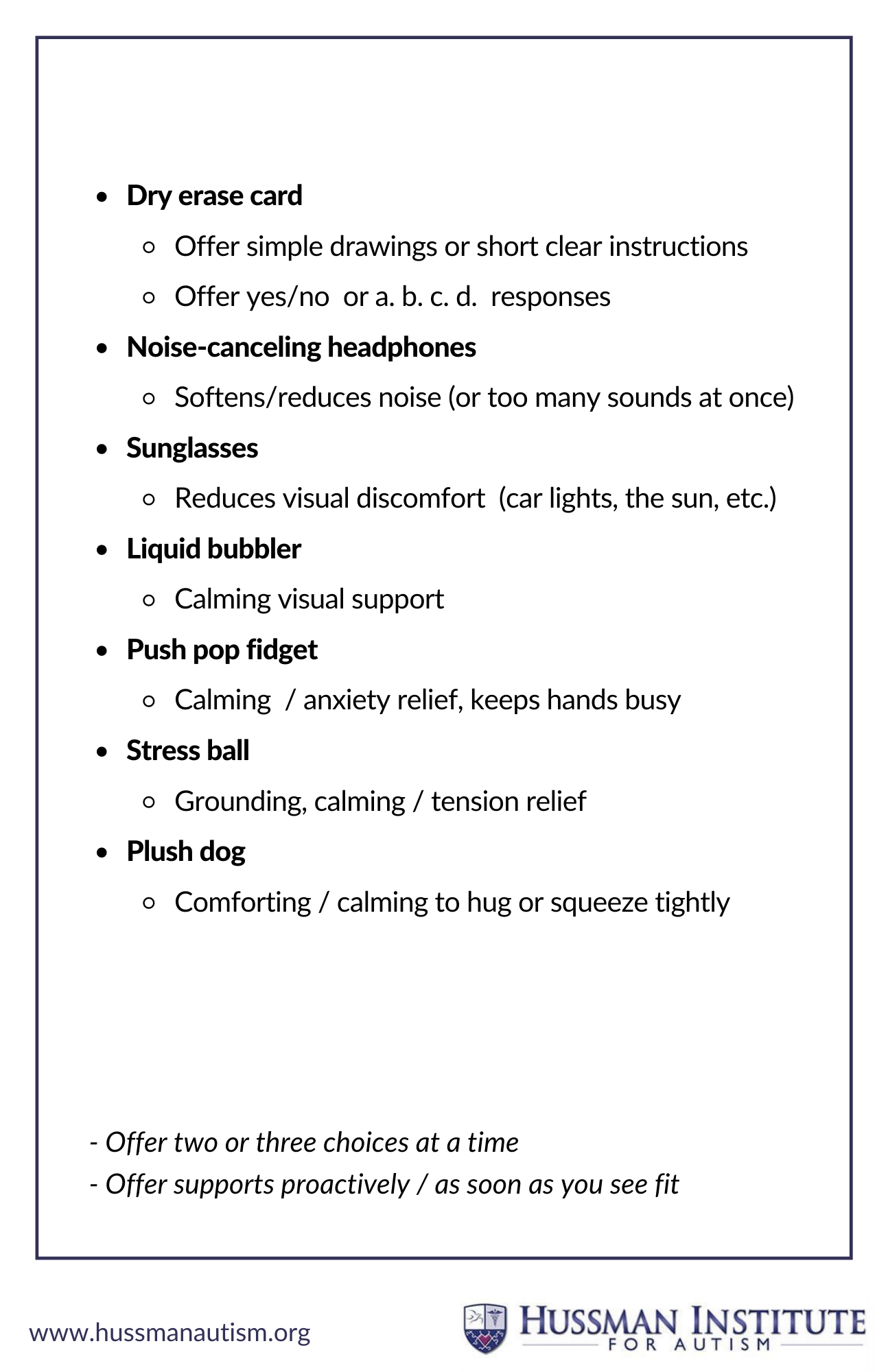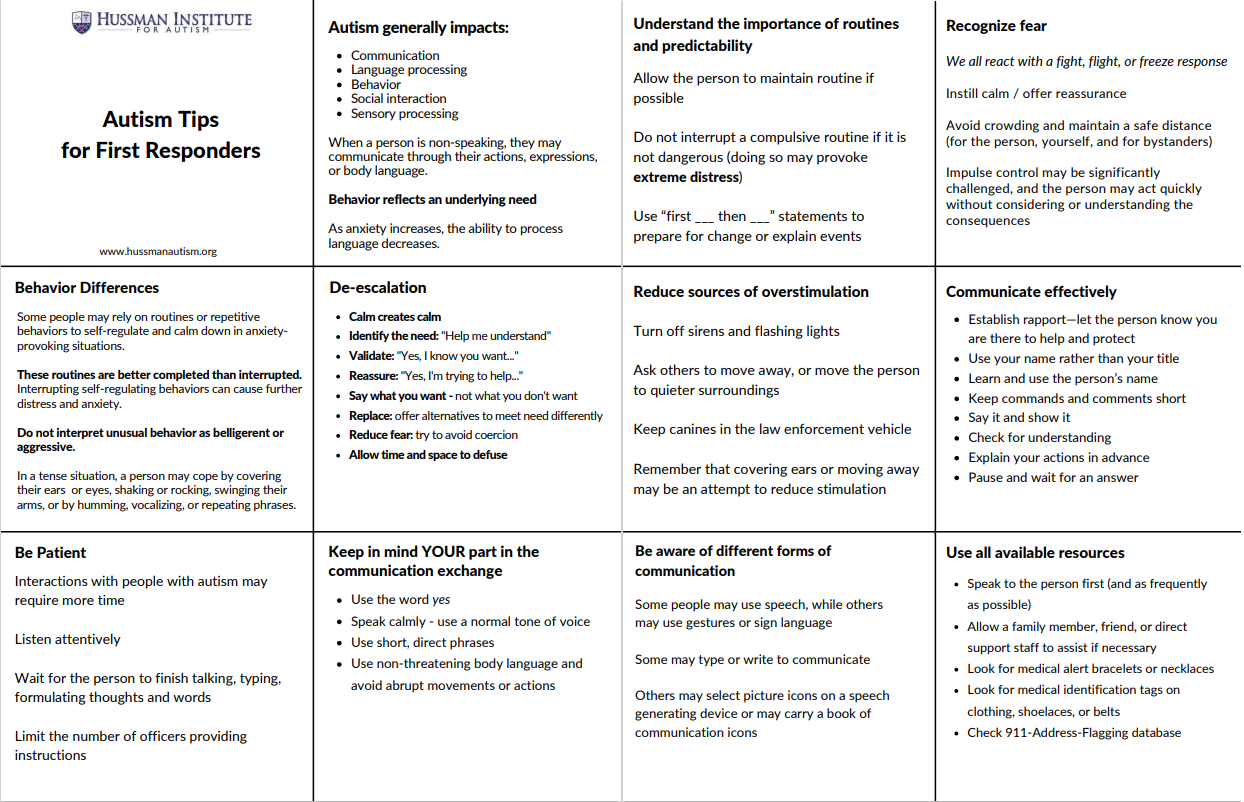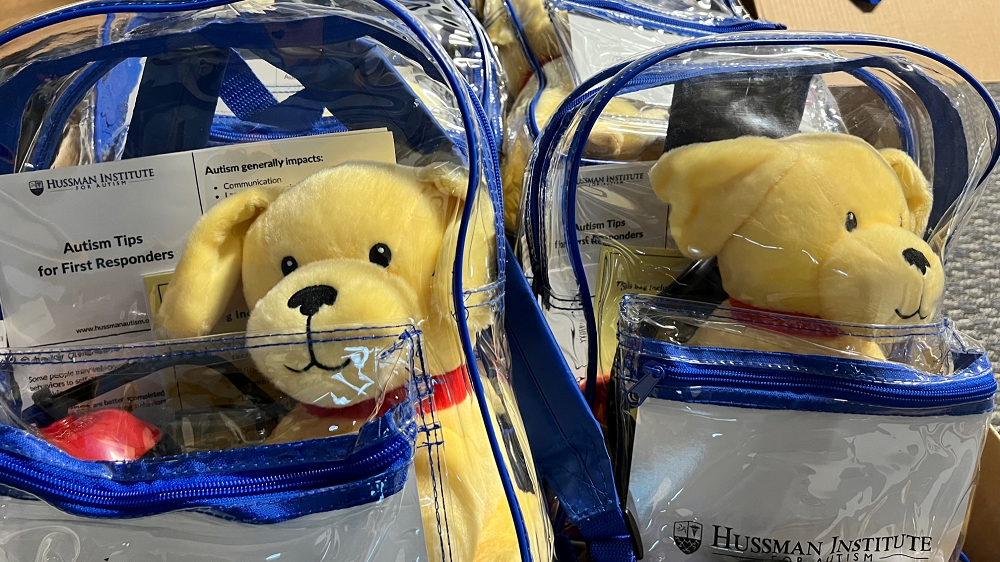
In stressful situations, such as emergencies, people with autism may experience heightened challenges with communication and sensory perception. The sensory kit below includes items that may be helpful to officers, such as tips on assisting and interacting with a person with autism, as well as communication boards and visuals to make communication more accessible, and sensory items that may be comforting or regulating to the person with autism.
Clicking on any of the graphics below will open a high-resolution, printable version in a full-size window.
Our suggested sensory kit includes:
Autism support tips for first responders:
Communication supports:
-
- ID/information sentence starters
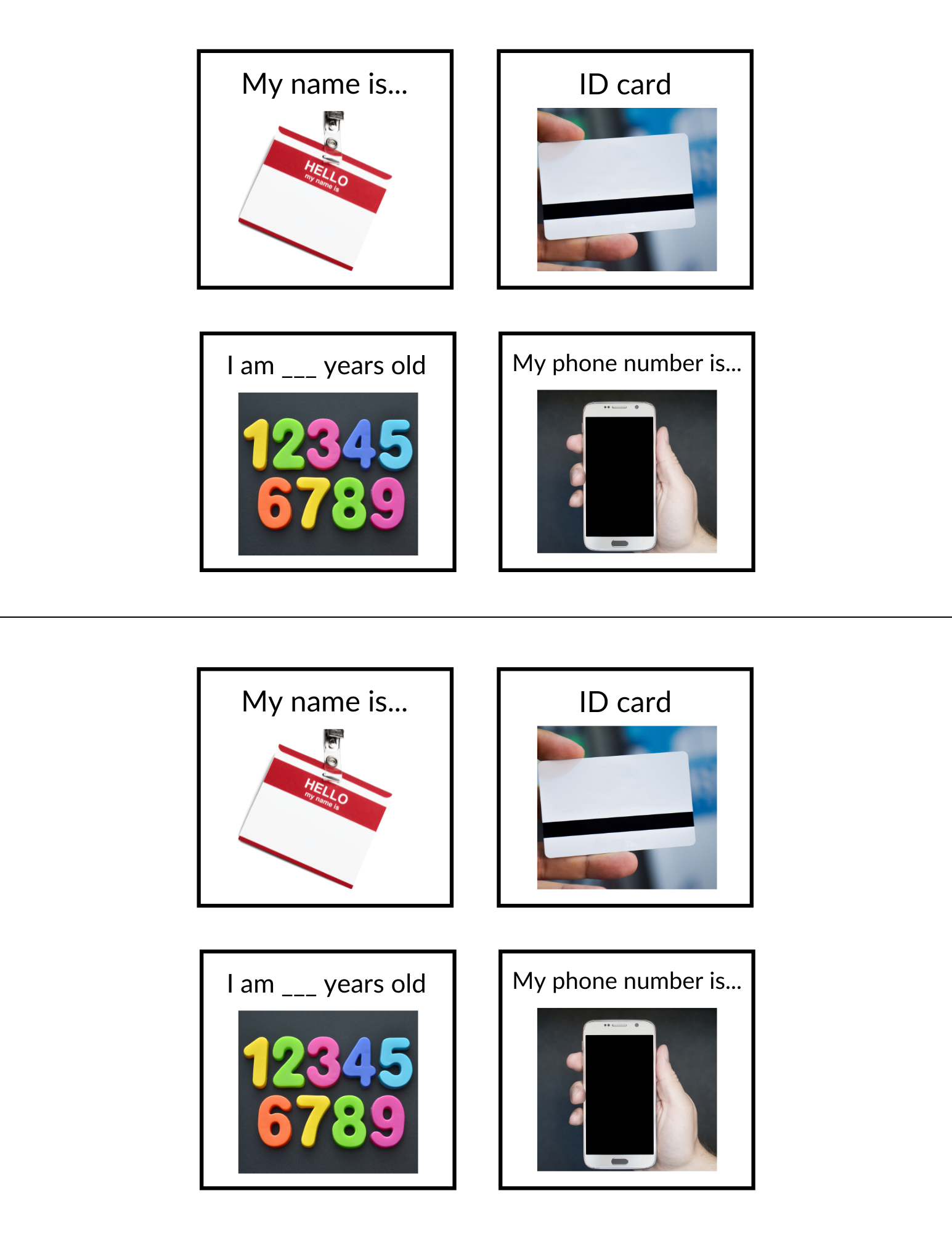
- Common words with pictures (“I need ___”)
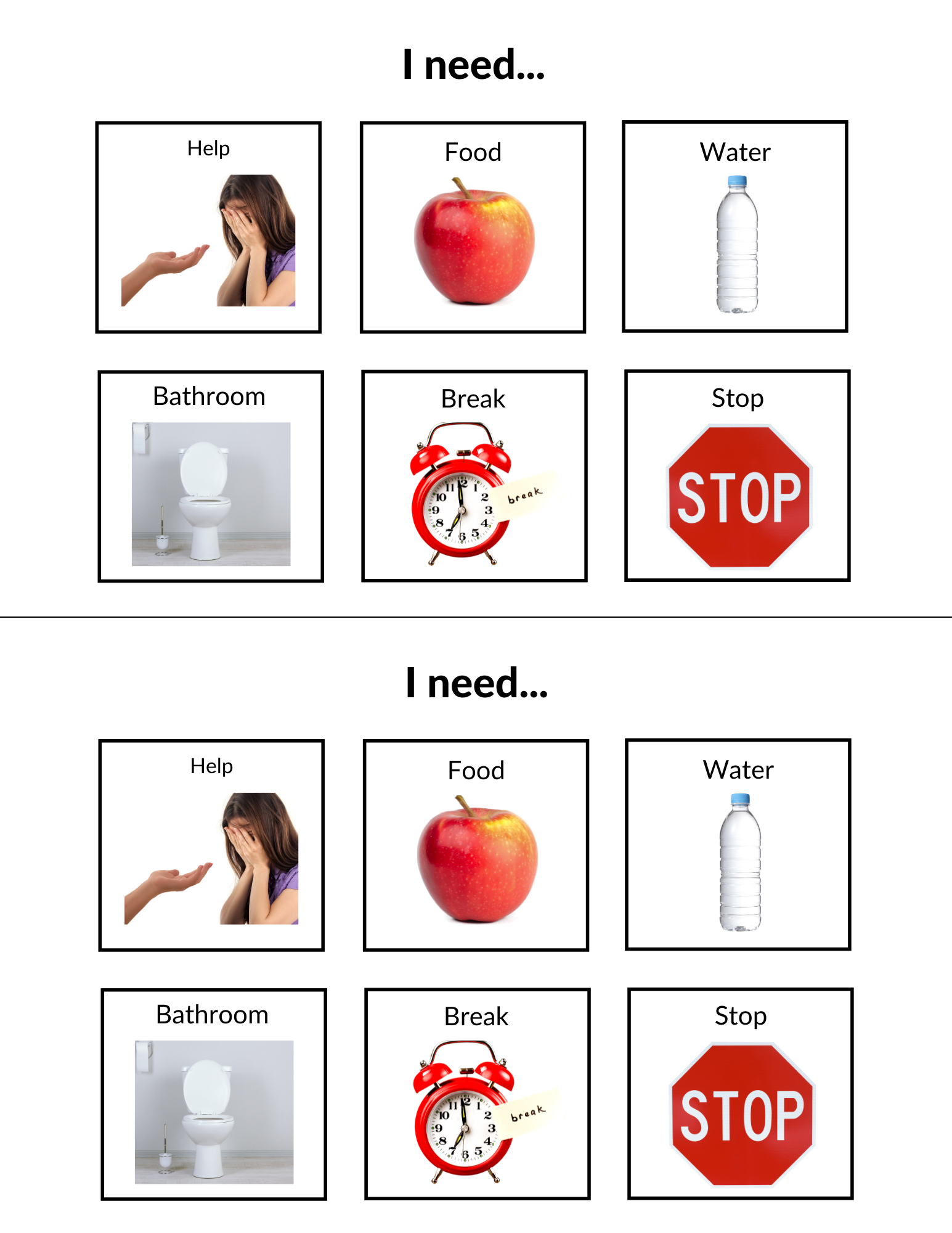
- “I feel ___”
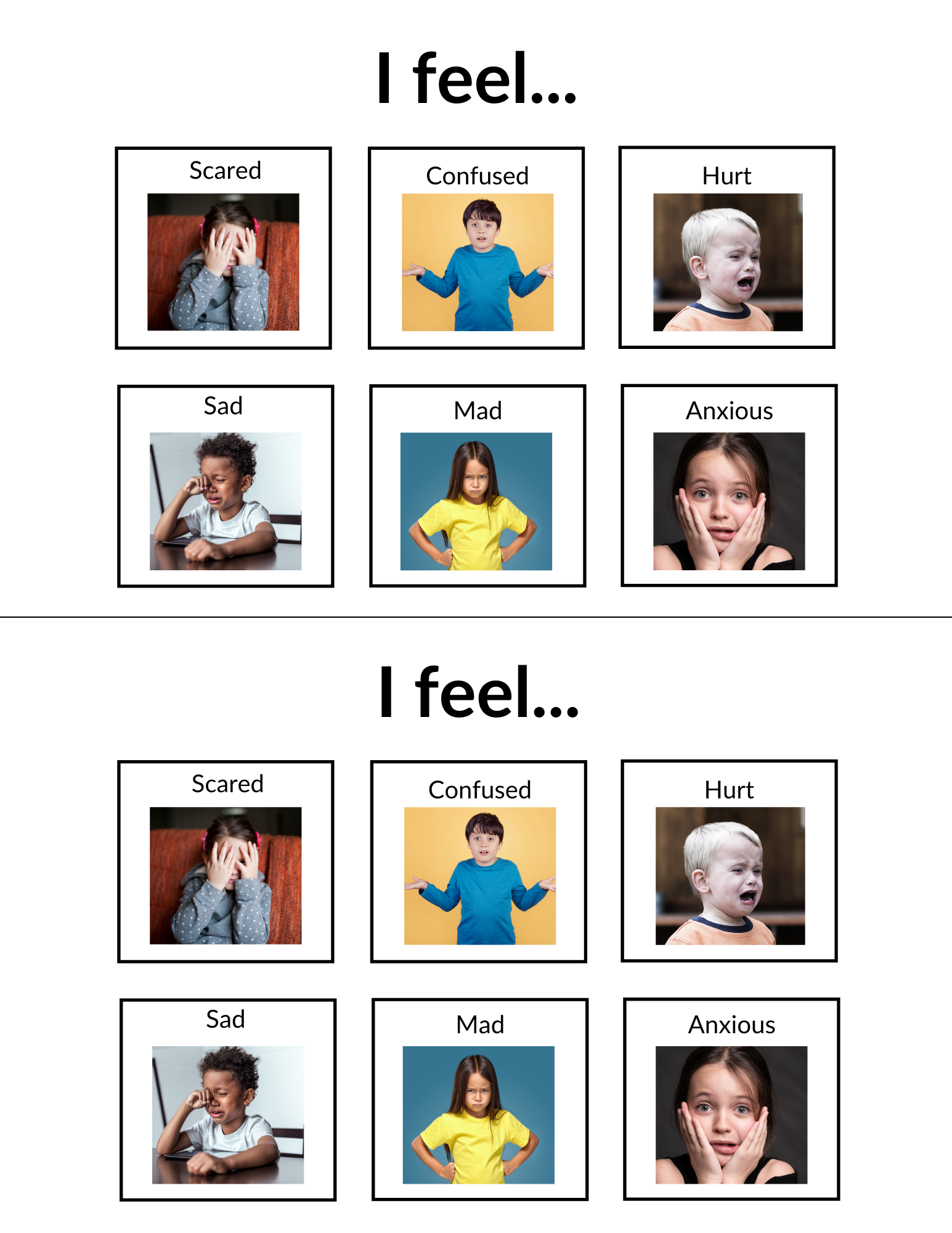
- “Police –> Help –> It’s okay”
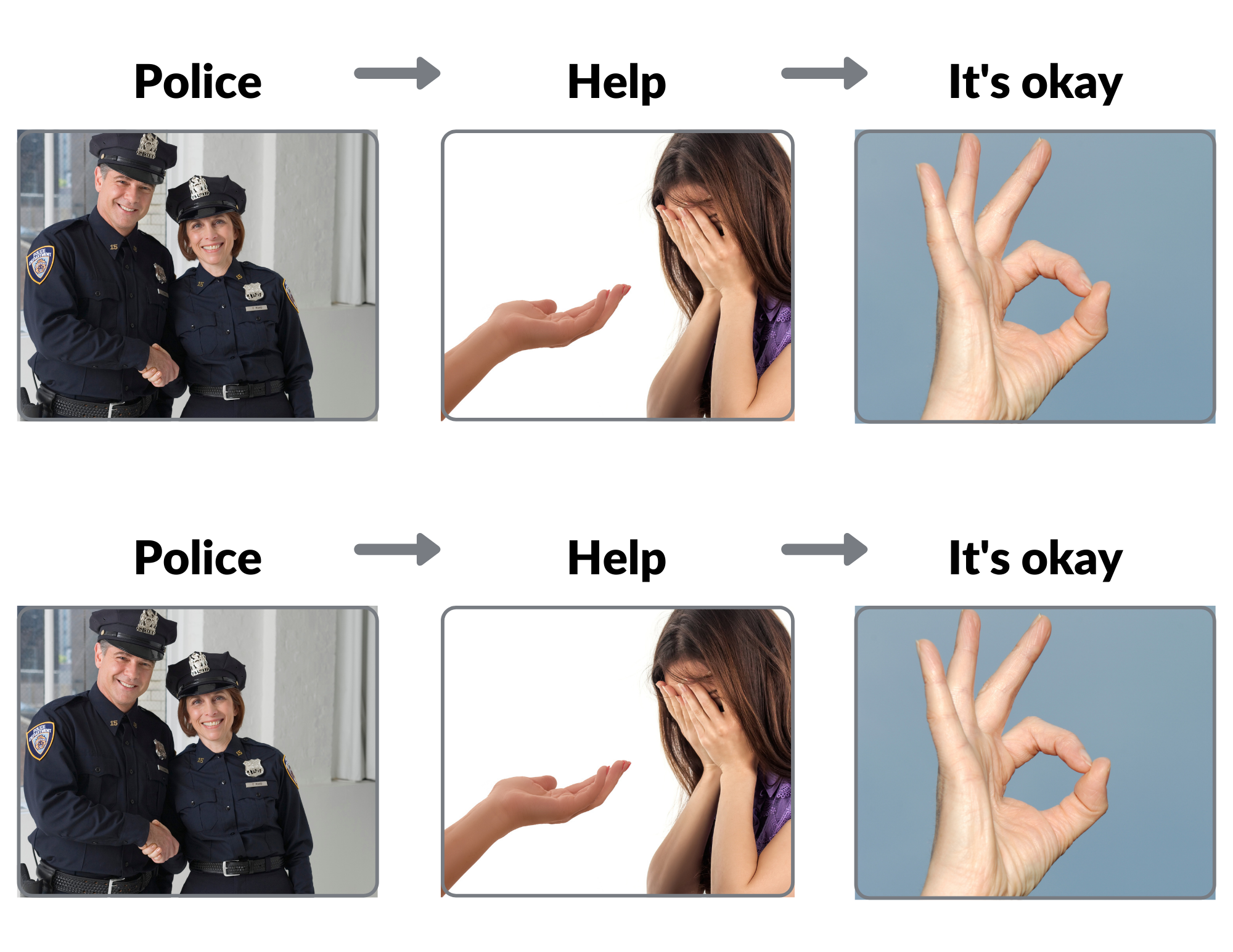
- Reassuring phrases
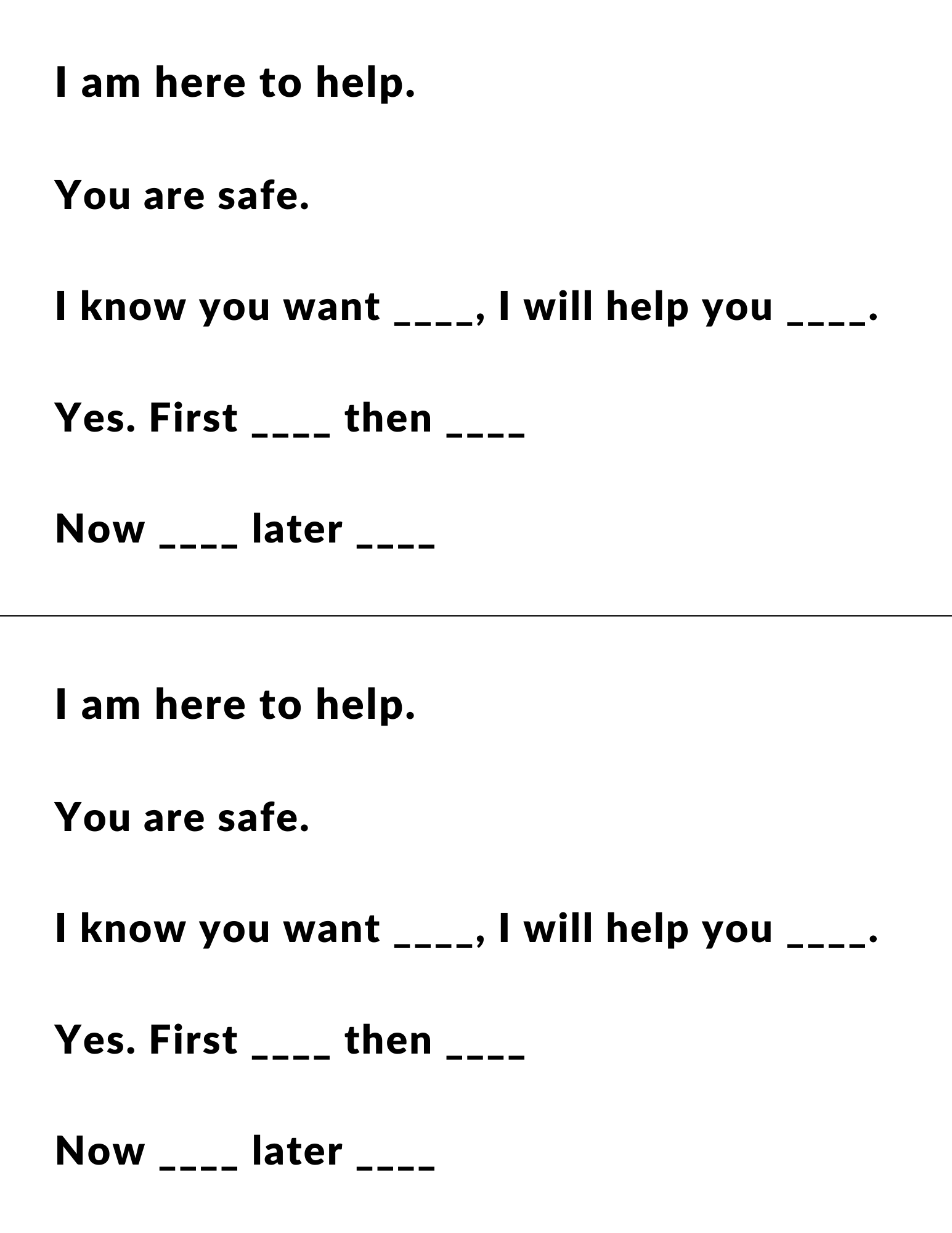
- Letterboard
- Dry erase card and marker:
- Clear backpack:
- MarcoPromos Clear Security Backpack
- ID/information sentence starters
Sensory supports:
- Noise-canceling headphones:
- Sunglasses:
- Liquid bubbler:
- Push pop fidget:
- Stress ball:
- Stuffed animal / plush:
Using the support kit:
- Communication boards
- ID Information (Sentence Starters)
- “I need ___”
- If someone is upset and does not communicate through speech (or is unable to communicate due to stress), the visual prompts on this communication board may be helpful.
- “I feel ___”
- A good way to start an interaction with someone non-speaking might be to ask them how they are – and then to offer this support. If they do point to a response, you can read it aloud.
- Police → Help → It’s okay
- Reassuring Phrases
- Providing reassurance helps someone know they are safe, not in danger, and hopefully offers insight on what is going on the situation, what is expected & what will happen next
- Letterboard (includes yes / no)
- In situations where choices are being offered or basic information/responses are being elicited, a letterboard may be helpful. Some individuals with autism may communicate using visual prompts, or by pointing at letters. It is important to watch closely to see what they spell (the officer can also repeat what they typed).
- It can be helpful to place letterboard on a flat surface
- If someone is non-speaking and can communicate by pointing, keep the letterboard out so it is accessible to them
- This can accompany the other communication visuals such as picture boards
- Dry erase card & marker
- Can be used to offer simple drawings or short clear instructions. Individuals with autism often respond to visuals (even stick figure drawings) even if they do not respond to verbal requests
- Useful in offering yes/no or a. b. c. d. choices
- Can help predictability: Write down a quick list of what will happen (1. First wait here 2. Mom is coming 3. Go home)
- Person can also write or draw on board to communicate
- Noise-canceling headphones
- Helpful with loud or overwhelming noises (cars, sirens, etc.) – particularly if someone is holding their ears
- Also helpful with many noises at once (even though you may not perceive these noises as loud, uncomfortable, or distracting), multiple noises can be uncomfortable, frustrating, or overwhelming for someone who is sensitive to noise
- The headphones still allow the person to hear, but just reduces noise
- Sunglasses
- Individuals with autism may be more sensitive to light
- May include – flashing/strobe/LED lights, bright sunlight, etc.
- Signs of visual sensitivity include looking down, avoiding looking up, blinking a lot, keeping eyes closed, or covering / pressing on eyes
- Pressing on eyes also a sign of stress or overwhelmNote that with both headphones / sunglasses – someone may not be able to focus their attention on you or listen / communicate if they are overwhelmed by the sensory input of noises or light – offering this type of support can really help them to focus, communicate, and feel more comfortable
- Additional Supports
These may be provided based on individual preference – there’s not one specific “reason” each of these may be supportive / enjoyable / relaxing to someone, rather, a person might have a specific preference as to what is most supportive to them / what they like/prefer.As long as the person is not hurting themself or putting anyone in danger, these sensory items can be used in whatever way that is helpful. It’s also okay for someone to have “busy hands” – even if they aren’t holding a sensory support – so long as they are not, again, putting anyone in danger – flapping hands, playing with fingers in front of eyes, etc. can be regulating – using the body as built-in sensory support.
- Liquid bubbler
- Calming visual input for someone who is appears physically relaxed but distracted/stressed/anxious in communication, expression, or behavior – this might be gentle support
- Can also shake it, move it around etc. (this is okay – repetitive movement is often calming)
- Push pop fidget
- Calming / anxiety relief, keeps hands occupied – if the person is reaching for things that they should not be, or engaging in things like scratching or pinching skin (due to anxiety), etc.
- Can be a “fun” sensory support – if the person is just waiting and needs something to do (perhaps their parent is talking to officer)
- Offers popping noise which some people enjoy or find supportive (auditory input)
- Stress ball
- Grounding, calming / tension relief
- Squeezing can also help if someone is feeling more upset or aggressive (let energy out this way)
- When trying to help calm someone, you can say, “Squeeze now,” or “Can you squeeze it 5 times?” (to cool down or regulate)
- Plush dog
- Can hug or squeeze plush dog tightly (a type of proprioceptive input). This can be very regulating and help center a person – squeezing something tightly offers this type of sensory input
- Can also be a comfort object for the person
Possible additional or alternative components:
- Liquid bubbler


